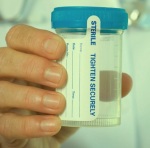 By David Hirshfeld
By David Hirshfeld
with Jean Acevedo, Guest Contributor
As premiums and deductibles rise and coverage shrinks, more and more patients have difficulty paying for their health care. You can provide financial relief to your patients if you wish, but you should only do so in accordance with a uniform hardship policy.
As a general rule, the practice should not routinely waive co-pays or deductibles, or offer discounts based on a patient’s statement that the patient is suffering from financial hardship. If the practice does routinely offer discounts or waivers of deductibles without properly investigating a patient’s financial wherewithal, the practice runs the risk of violating its payor contracts, being accused of committing insurance fraud, and/or paying an illegal kickback to induce patients to come to the practice. Some payor contracts require the practice to bill the payor the lowest rate that the practice bills any of its patients, a so-called “most favored nation provision.” Typical Medicare participation agreements are subject to this type of provision. If the practice waives deductibles or co-pays, then insurers often take the position that the amount being billed by the practice to the insurer ought to be reduced by the amount waived. In addition, a regulator could conceivably accuse the practice of waiving co-pays and deductibles as a means of inducing patients to seek treatment from the practice in violation of anti-kickback laws.Continue reading
 By: Jackie Bain
By: Jackie Bain







